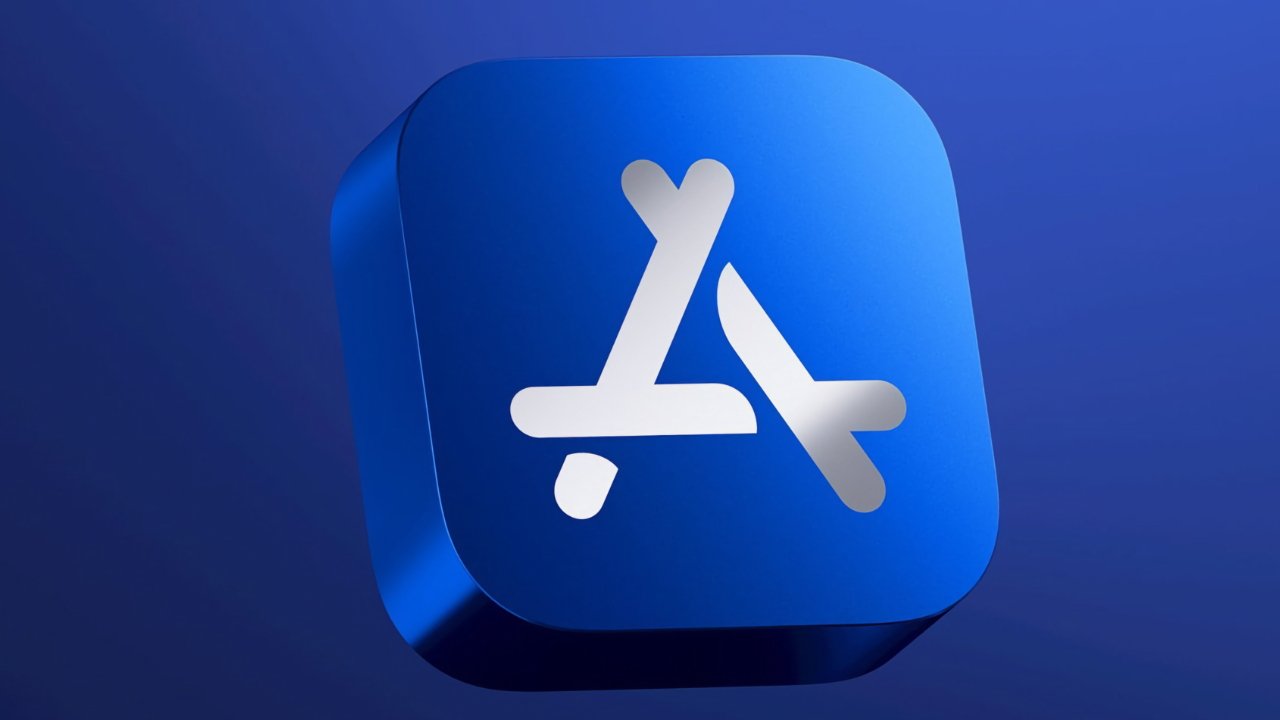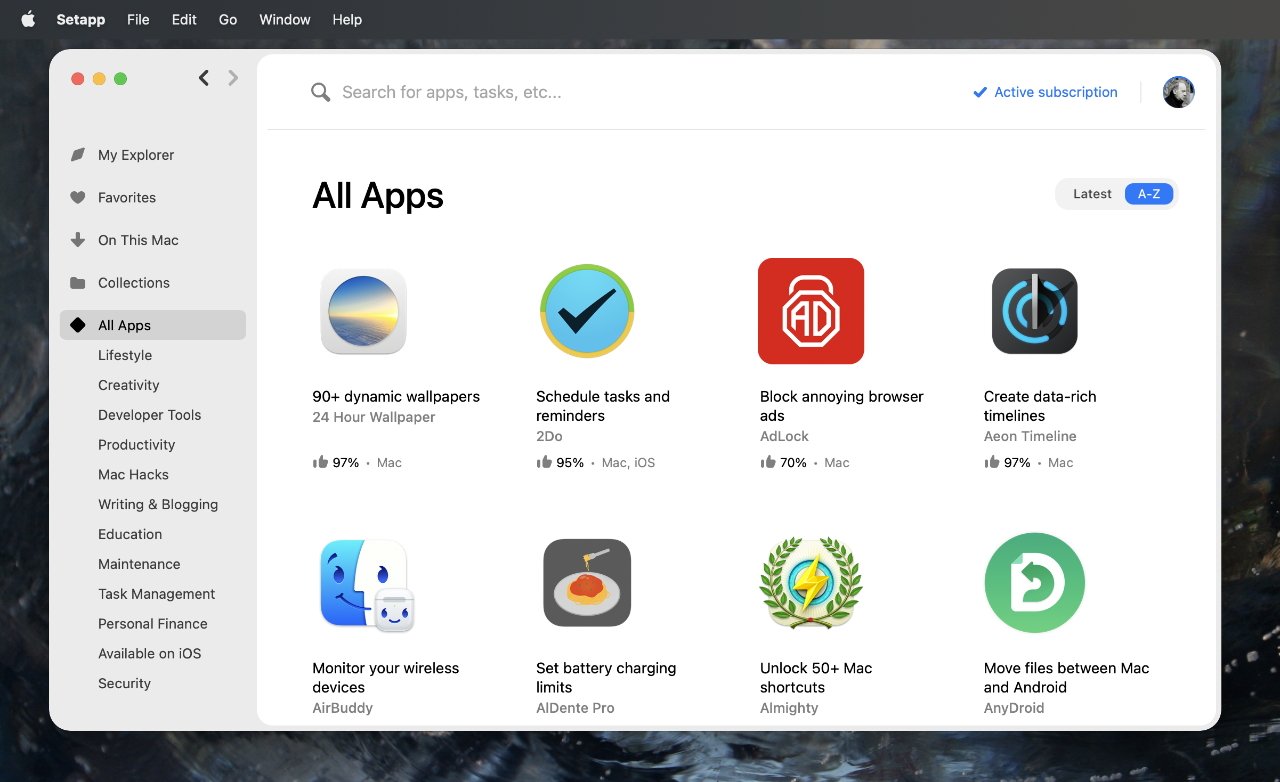Developers cautiously welcome prospect of third-party app stores
Unless something changes, the EU's Digital Markets Act will effectively force Apple to allow alternatives to the App Store. AppleInsider asked developers what they think — and what they're planning to do.
Apple continues to oppose being required to allow alternatives to its iOS App Store, but reportedly it is preparing for that eventuality. Software and services engineers at Apple are believed to be preparing for the European Union's Digital Markets Act, which could require third-party app stores by 2024.
Overall, there appears to be at least an acceptance by developers that such a move will happen. In some cases there is an active appetite for what third-party app stores could bring, though among the longest-serving developers, there is a cautious wariness.
Excited by the prospect
"We at Setapp were excited by the news that Apple is preparing to allow third-party app stores on the iPhone (although in the EU only for now)," Mykola Savin, Lead Product Manager of Setapp, told AppleInsider.
Setapp is a subscription service originally for Mac apps, but which has been trying to include more iOS ones. It's arguably already a third-party app store, too.
"Setapp is indeed an alternative third-party store on a Mac that aims to benefit both users and developers," continued Savin. "For users, it offers a different way of app consumption and management — access to a curated collection of apps with a flat-fee subscription."
Savin says that there are over 240 Mac apps on his platform, but just 37 iOS ones, all of which are iOS versions of cross-platform Mac apps.
"We're currently limited by Apple [and can't] add iOS-only apps to the platform," he said. "We would be happy to make a full-fledged alternative to AppStore as this has been a popular request from our users, as well as iOS developers who apply to join Setapp."
Just as Setapp sees advantages because of its split between Mac and iOS apps, the developer behind Luna Display believes there are opportunities for his company's mix of hardware and software. Luna Display lets Mac, iPad, and PC owners use the screens of each device with the others.
"I'd love to see the iPad and iPhone opened up to third party App Stores!" says Matt Ronge of Luna Display. "I strongly believe that competition creates more choices for consumers, and right now, the App Store has no competition."
"Right now if you ship a hardware product that works with an app, you need to publish your app through the App Store," he explains. "This is clunky because these apps don't work at all without the hardware!"
"In our case, we had to build a special 'virtualized' hardware mode to get our app through App Review," says Ronge. "So why do we need to go through the App Store at all then? It would be better if we could distribute it like a download from our website."
Ronge says that would also let companies like his keep old versions of apps available, which is "not really possible" via the App Store.
Beyond his own company, Ronge says that he thinks that if there were app stores with a much lower commission than Apple's 30%, it could spark innovation.
"What kind of new apps could be possible?" he asks. "Betas and experimental features — you aren't allowed to ship beta software on the App Store. What if you could?"
"Could we experiment and innovate even faster?" wonders Ronge. "Could we ship new experimental features?"
The current App Store is just fine
Not everyone is interested in there being third-party app stores. Developers such as those at the Omni Group who remember the costs involved in selling software on CD-ROM via retail stores, say that they ultimately don't expect a great change..
"It's hard to say what effect the Digital Markets Act might have in general, but I don't expect it to affect our particular software very much," Greg Titus, Omni Group CTO, told AppleInsider. "Omni's productivity apps are right in the sweet spot of what Apple's App Store is built for, and we've generally been pretty happy with how Apple has supported us and how the App Store has sold our applications."
James Thomson, the developer of PCalc, goes further predicts that users will keep sticking to Apple's App Store.
"Personally, I think it will mean very little for us," he said. "Back when where we were selling PCalc both in the Mac App Store, and also directly, we were seeing well over 80% of people choosing to purchase via the App Store."
"For all the extra paperwork involved, it didn't make sense to sell in other stores back then," continued Thomson, "and I don't really think it will make sense for us to do so in the future."
"Of course, we're not doing anything that's particularly likely to run afoul of App Review," Thomson notes, "and different types of apps will have different things to consider, but I don't see us changing to other stores even if they were available."
The threat to Apple's business
Third-party app stores would benefit some firms, and perhaps make no difference to others. But there is the question of whether it will make a difference to customers — or to Apple.
"I don't see [third-party stores] posing a threat to Apple, either revenue-wise or security-wise," says Setapp's Savin. "If we look at Android, sideloading hasn't impacted Google Play much. Also, sideloading has long been allowed on Macs."
"And we know from Setapp's recent Mac Apps Report that for the majority of Mac users [the] App Store remains the most popular and trusted way to find and get new apps," he continued. "I assume the situation is similar for iOS users and allowing third-party stores won't change that much."
Thomson, whose PCalc has been on sale for three decades, and sold in Apple's app store on every platform from iOS to the Apple TV 4K, is more concerned about the threat to developers.
"My main concern is that if Apple does open up side-loading in a more general fashion, it will lead to greater levels of piracy on iOS, that you can see happening on the Mac today," he said.
Wait and see
So some developers are excited, while others are wary. All, though, think that it is still the early days.
"I have more questions than answers about how the Digital Markets Act might affect Apple's platforms," Omni CEO Ken Case told AppleInsider. "It could potentially make app distribution on iOS more like app distribution on macOS, but just how much more alike remains to be seen."
 William Gallagher
William Gallagher













 Malcolm Owen
Malcolm Owen
 William Gallagher and Mike Wuerthele
William Gallagher and Mike Wuerthele
 Christine McKee
Christine McKee


 Marko Zivkovic
Marko Zivkovic









